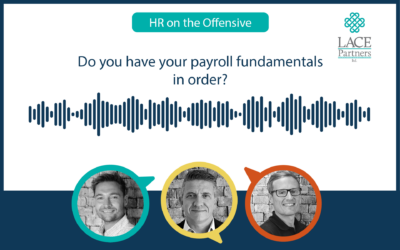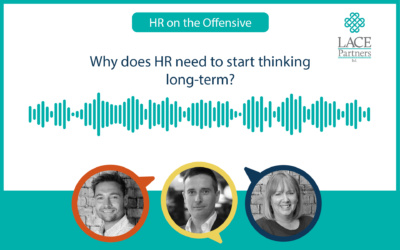In May we hosted the latest of our regular payroll community forums. Senior Payroll professionals from a wide variety of industry sectors regularly join us to discuss everything from optimisation (when, how and how much?) to ownership and reach, debating the current and future challenges for Payroll and HR alike. Below is a snapshot of some of the discussions, but if you’re interested in being part in this invitation-only forum, then fill in the form at the bottom of the blog to request more information.
Payroll’s ‘seat at the table’
Exactly where Payroll should sit at the table – and, indeed, which table – formed the basis of the first part of our discussion. When it comes to optimisation, for example, some voices were strongly in favour of a place at the C-suite/management table, while others argued for a side seat at the HR Leadership table. Either way, agreement was reached that optimisation means different things to different companies. It depends on its size, its scope, its internal structure and whether Payroll stands alone, reports to Finance, reports to HR or none of the above. The fact remains that, while Payroll is always one of the most important functions of every business, how and where it sits is determined by a complex network of factors. Understanding this is central to analysis impacts any optimisation strategy.
The true meaning of Payroll optimisation
A lengthy debate over the exact meaning of ‘Payroll optimisation’ revealed that it basically depends. And it depends on multiple factors. For example, early-stage businesses focus more on foundational issues, while more established companies might already be implementing AI and automation into their service model. Ensuring all the data is correct is obviously a key concern for every Payroll function, regardless of where the business is at in its journey. Pulling together all of the differing aspects of Payroll – such as systems, processes, QA and data analysis – are all important for the functioning of Payroll. But as to where it sits in a business, or how best to future-proof its functionality through automation or increased sophistication of systems, is specific to that business. For example, one voice at the forum opined that Payroll fits best within Finance with input from HR, while others argued for overall HR control.
Are we talking about optimisation only or a wider scope of continuous learning?
From discussion on the basis of transactional performance, the focus shifted to the wider potential for Payroll. How much time can – or should – Payroll put into moving things to the next level? While the appetite for expanding externally and widening the scope of Payroll is there, the time and investment necessary to do so isn’t. Given most Payroll departments work solely on their single system, there isn’t an easy way to gain a useful overview of the different options available across the sector. There is huge potential in facilitating a more comprehensive understanding of different systems, different approaches and innovative ways to shake up the entire function.
Hybrid working and employer of record
A brief discussion ensued surrounding the benefits of using an employer of record to facilitate hybrid and remote working. The overall consensus showed a distrust of the quality of these kinds of services and whether the investment would be wise in the current economic circumstances.
The problem with being problem solvers
What unique skills do Payroll teams pick up? They’re the problem solvers. It’s Payroll that moves mountains every month to ensure everyone is paid on time – and that means dealing with all kinds of challenges and unforeseen hold ups. As well as the day-to-day running of the payroll, the team will inevitably have to scramble to make it work. This is for reasons beyond their control, usually including the lack of data. If other departments aren’t feeding the correct information on time every month, then Payroll is left with the hurdle of sorting it out in time to reach tight deadlines. This takes time and energy that could otherwise go into continuous improvement. Simply put, the vagaries of payroll means there is very little time to zoom out and take a macro approach to innovation and improvement.
What can Payroll do to get breathing space?
While it’s great that payroll executives continually display impressive problem-solving skills, there needs to be some push back in order to allow for development and improvement. The group concluded that it would be ideal if Payroll could push some of the problems that frequently land on their department to other, more appropriate parts of the business. For example, employee data should fall under HR’s control, with the employee also taking responsibility for their own records. If the data is incorrect, it needs to be fixed before reaching Payroll. Making these kinds of core changes would allow Payroll to have the time and space to focus more strategically on the entire function’s remit in order to optimise in a cost effective and useful way.
Post-pandemic elevation of Payroll must go real life
During the pandemic, the spotlight shone hard on the Payroll industry, with way more focus, investment and interest in the absolute rock solid importance of the function. All of this has led to better experiences and an expanded position for an industry that has traditionally been overlooked. But this has also led to more discussion within the industry regarding some significant issues. For example, the fact that around 40% of the population is considered financially illiterate gives rise to debates over whose responsibility it is to fix it. The options are: the government, family/parents, the education system or the company. Representatives from large companies argue this is emphatically not their responsibility to fix, while smaller businesses are more likely to take a pragmatic approach. After all, whether it’s right or wrong could be considered moot – the fact is the problem of financial illiteracy exists and someone needs to help employees understand the financial world.
The issue of payroll loans – should companies ‘pay on demand’?
As part of this wider discussion over financial responsibility for employees, the group discussed payroll loans – whether they’re appropriate and how they would be managed. There was a lot of favourable feedback to the basic tenet of the company supporting employees for one-off emergency payments. However, some expressed concern over the system’s potential for abuse by irresponsible employees. However, the upshot was that, while it’s not something that has been adopted by many companies as yet, it’s worth considering as simply the right thing to do. There is a much wider discussion here about the governance of employee’s lives and the level of appropriate duty of care implemented by companies.
Payroll has an integral role in all of the above and the intricacies of our discussion at the forum shows just how complex and far-reaching its responsibility is. If you want to join us for the next forum to get your say on Payroll’s future, message us using the contact form below.






